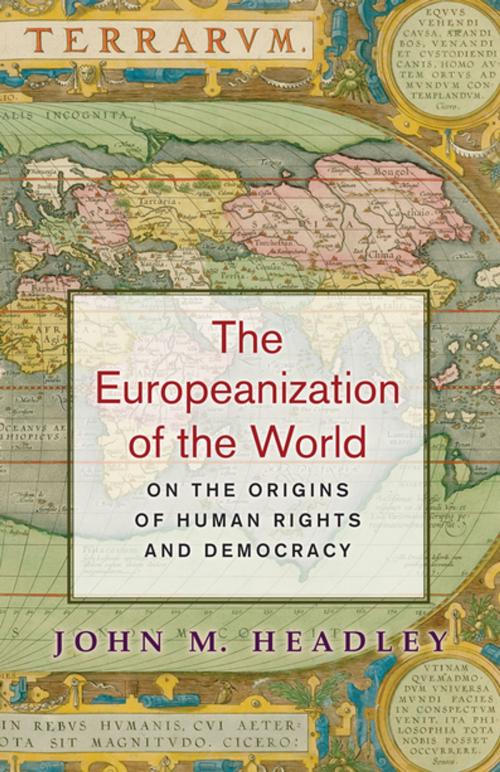The Europeanization of the World
On the Origins of Human Rights and Democracy
Nonfiction, Social & Cultural Studies, Political Science, Government, Local Government, History, European General| Author: | John M. Headley | ISBN: | 9781400880249 |
| Publisher: | Princeton University Press | Publication: | July 26, 2016 |
| Imprint: | Princeton University Press | Language: | English |
| Author: | John M. Headley |
| ISBN: | 9781400880249 |
| Publisher: | Princeton University Press |
| Publication: | July 26, 2016 |
| Imprint: | Princeton University Press |
| Language: | English |
The Europeanization of the World puts forward a defense of Western civilization and the unique gifts it has bequeathed to the world-in particular, human rights and constitutional democracy-at a time when many around the globe equate the West with hubris and thinly veiled imperialism. John Headley argues that the Renaissance and the Reformation provided the effective currents for the development of two distinctive political ideas. The first is the idea of a common humanity, derived from antiquity, developed through natural law, and worked out in the new emerging global context to provide the basis for today's concept of universal human rights. The second is the idea of political dissent, first posited in the course of the Protestant Reformation and later maturing in the politics of the British monarchy.
Headley traces the development and implications of this first idea from antiquity to the present. He examines the English revolution of 1688 and party government in Britain and America into the early nineteenth century. And he challenges the now--common stance in historical studies of moral posturing against the West. Headley contends that these unique ideas are Western civilization's most precious export, however presently distorted. Certainly European culture has its dark side--Auschwitz is but one example. Yet as Headley shows, no other civilization in history has bequeathed so sustained a tradition of universalizing aspirations as the West. The Europeanization of the World makes an argument that is controversial but long overdue. Written by one of our preeminent scholars of the Renaissance and Reformation, this elegantly reasoned book is certain to spark a much-needed reappraisal of the Western tradition.
The Europeanization of the World puts forward a defense of Western civilization and the unique gifts it has bequeathed to the world-in particular, human rights and constitutional democracy-at a time when many around the globe equate the West with hubris and thinly veiled imperialism. John Headley argues that the Renaissance and the Reformation provided the effective currents for the development of two distinctive political ideas. The first is the idea of a common humanity, derived from antiquity, developed through natural law, and worked out in the new emerging global context to provide the basis for today's concept of universal human rights. The second is the idea of political dissent, first posited in the course of the Protestant Reformation and later maturing in the politics of the British monarchy.
Headley traces the development and implications of this first idea from antiquity to the present. He examines the English revolution of 1688 and party government in Britain and America into the early nineteenth century. And he challenges the now--common stance in historical studies of moral posturing against the West. Headley contends that these unique ideas are Western civilization's most precious export, however presently distorted. Certainly European culture has its dark side--Auschwitz is but one example. Yet as Headley shows, no other civilization in history has bequeathed so sustained a tradition of universalizing aspirations as the West. The Europeanization of the World makes an argument that is controversial but long overdue. Written by one of our preeminent scholars of the Renaissance and Reformation, this elegantly reasoned book is certain to spark a much-needed reappraisal of the Western tradition.















